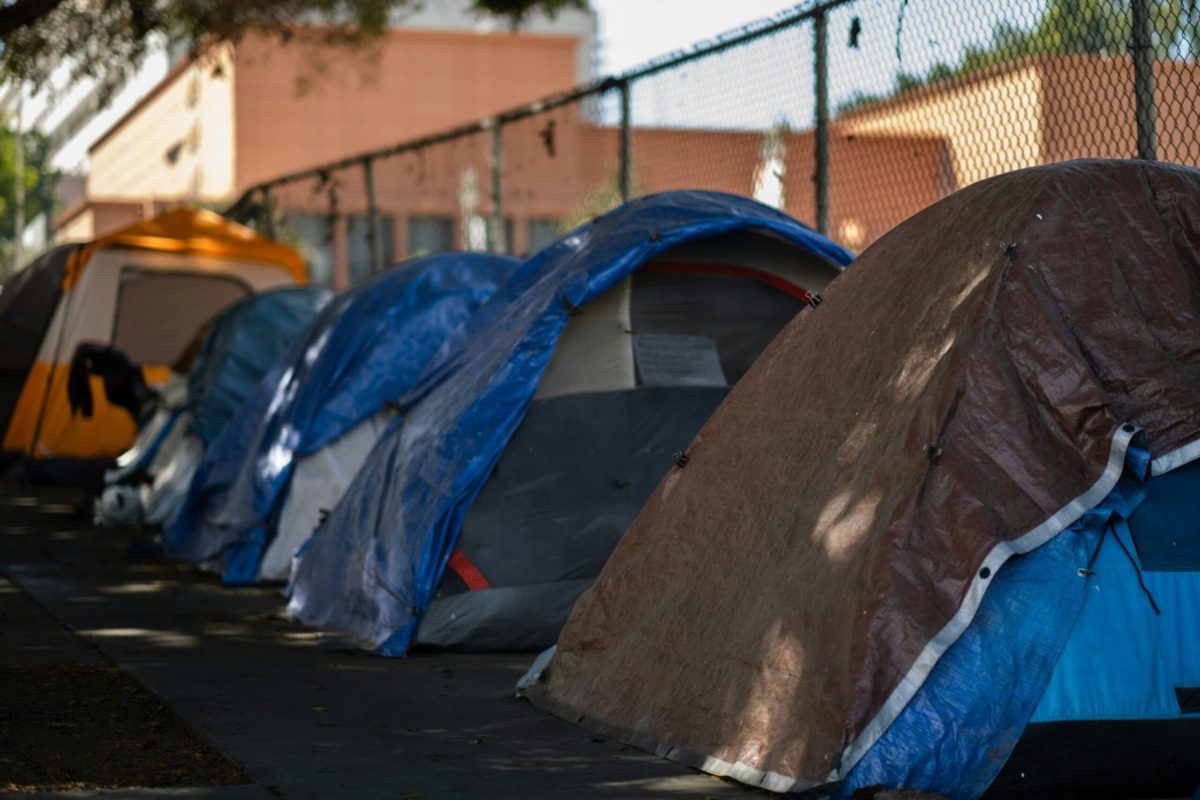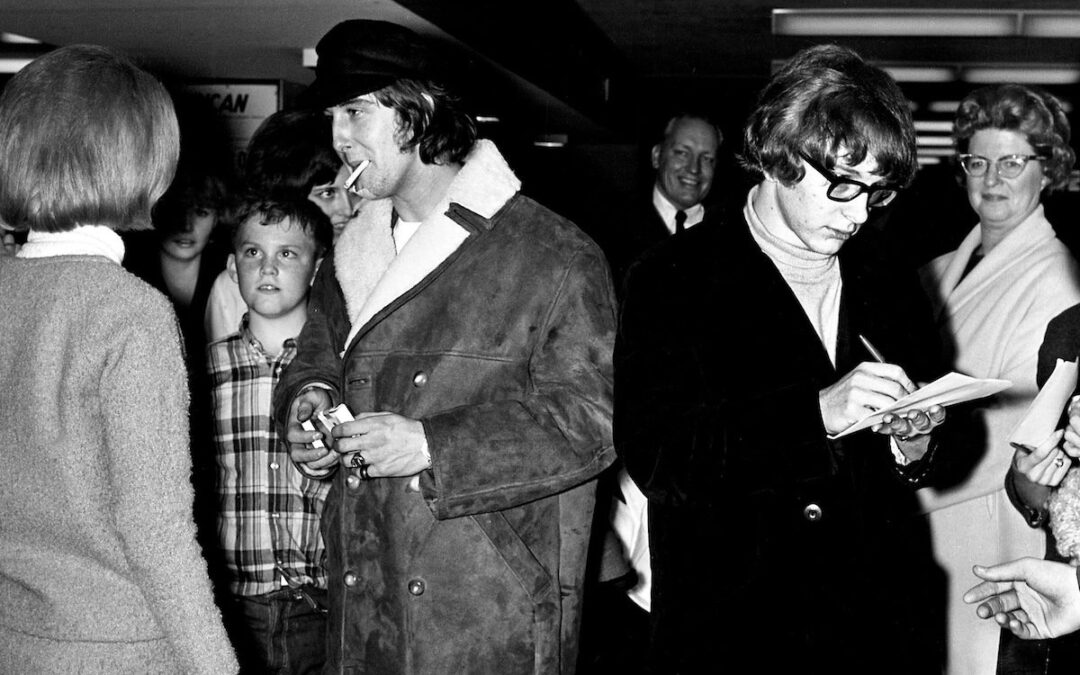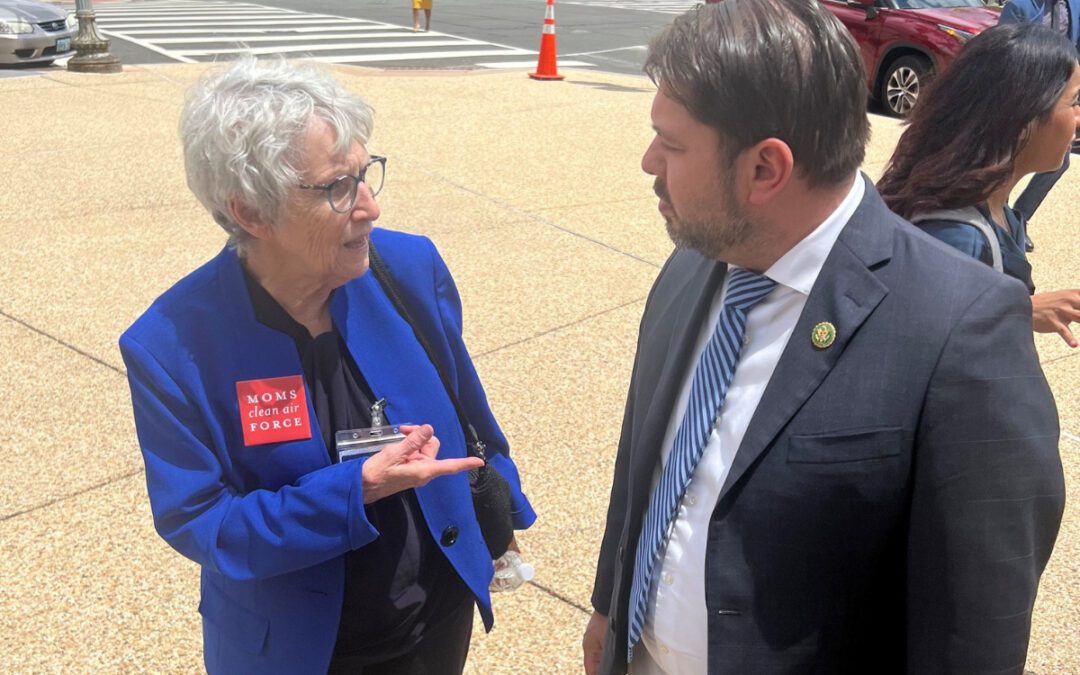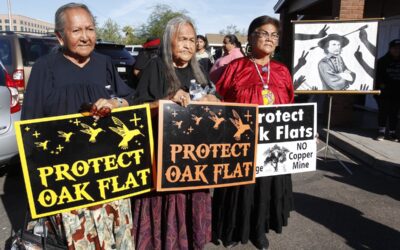
Homelessness in Arizona has hit a crisis point. With a new grant, NAU and its community partners are seeking solutions.
Homelessness in Arizona has surged to over 14,000 people in 2023 — a 29% increase since 2020 — prompting researchers at Northern Arizona University (NAU) to launch projects funded by the Garcia Family Foundation to address the crisis.
Led by Laura Noll and Robert Wickham, these initiatives involve leveraging state datasets to understand the systemic failures and collaborating with community organizations to prevent future homelessness by addressing early warning signs like unpaid utility bills.
Additionally, NAU has established a Community Impact Fellows Program to support local shelters and health centers, while also working with agencies to distribute $10 million in prevention funds to help at-risk Arizonans stay housed.
NAU’s homelessness research projects
Homelessness in Arizona has reached a crisis point. Thanks to grants funding new research projects at NAU and its community partners, help could be on the way.
Laura Noll and Robert Wickham, associate professors at NAU, received over $1 million from the Garcia Family Foundation to lead projects aimed at housing and supporting unsheltered Arizonans and preventing future homelessness.
“One reason homelessness is a huge issue in Arizona is there’s a ratio of 18 to 10: For every 18 people who become unhoused, we can house only 10,” Wickham told the NAU Review. “Service providers are overwhelmed; supporting them is crucial.”
These projects began when Wickham joined NAU in 2021. He was invited to join the Arizona Housing Analytics Collaborative (AzHAC), a research partnership funded by the Garcia Foundation. Faculty and students from NAU, ASU, and U of A use state datasets, including the Homelessness Information System, to identify patterns to curb homelessness.
“We’re focused on understanding why Arizona’s support system fails some,” Wickham said. “As homelessness rates rise, understanding the underlying challenges is critical.”
Working with the Maricopa Association of Governments, the team examines sequences Arizonans move through before and after becoming homeless. They discovered unpaid utility bills are early warning signs of future rent struggles. Wickham said they’re facilitating communication between utility companies and support organizations.
Homelessness in northern Arizona
Wickham said NAU’s work on homelessness will soon extend further. Last year, the Garcia Foundation asked him about expanding AzHAC into northern Arizona.
Wickham then brought in Noll, a trauma psychologist who has experience solving problems with community organizations. With a $400,000 grant, they established a Community Impact Fellows Program. The funds support master’s students working with Flagstaff Shelter Services, Catholic Charities of Northern Arizona, and Northland Family Health Center to assist local residents struggling with homelessness and other issues.
“The fellowship program provides students with valuable experience and helps our community partners address significant challenges,” Noll said.
This school year, graduate students at Northland Family Health Center identified employee burnout as a significant challenge. The students will interview staff, analyze training processes, and review exit surveys to improve the organization’s future for both employees and clients.
Noll said Ph.D. students and undergraduates are involved, too. Two interdisciplinary health doctoral students are using their experience to help evaluate statewide and local programs with trauma-informed procedures. Alongside Community Impact Fellows, they’ll mentor NAU undergraduates gaining hands-on community research experience.
“At NAU, we aim to prepare students for economic mobility and community service,” Noll said. “This program uses university and community resources to create a better future in northern Arizona.”
Homelessness prevention
Noll and Wickham are working with agencies across Arizona to prevent homelessness.
“For those living paycheck to paycheck, a minor issue like a broken vehicle can lead to homelessness,” Wickham said.
They will lead a team to distribute $10 million to nonprofits providing essential services, funded by the Garcia Family Foundation, St. Vincent De Paul, and the Arizona Department of Housing.
“We’ll track outcomes to see if prevention funds prevent homelessness,” Wickham said. “If successful, it will keep people housed and prevent psychological effects of homelessness.”
Noll emphasized the importance of addressing homelessness, saying, “We’re only as safe as our most vulnerable members. The COVID-19 pandemic showed how interconnected our healthcare needs are. We share a common home, and that’s reason enough to care for each other.”
Read More Here
Read More Arizona News
This story was generated in part by AI and edited by The Copper Courier staff.
This article first appeared on Good Info News Wire and is republished here under a Creative Commons license.
READ MORE: Low and middle-income households in Arizona can get up to $14,000 in rebates for energy upgrades

How a chart-topping British Invader helped Tucson’s Linda Ronstadt hit it big
Beatlemania had reached a fever pitch by June of 1964 when Peter Asher and his singing partner, Gordon Waller, became the first British Invaders...

This Phoenix family just won the ‘Great Christmas Light Fight’
If Christmas spirit had a ZIP code, it would probably forward its mail straight to north Phoenix because The Biggest Little Christmas in...

This new book shows off photos from Arizona’s 90 ‘most pristine places’
This story was first published in The Copper Courier’s daily newsletter. Sign up here. Have you ever been to Arizona Wilderness Brewing Co.? It's a...

Hazel Chandler, who fought for cleaner air and climate action in Arizona, dies at 80
Next time the Phoenix environmental activism community gathers to demand action on air quality or climate change, it will be without one of its most...





